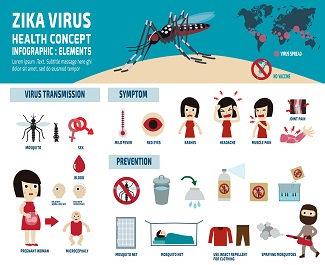Overview of breast engorgement
Breast engorgement is a condition in which the nursing mother’s breasts are painfully overfull with breast milk. It usually occurs when a nursing mother’s body secretes more milk than her baby uses.
When breast engorgement occurs, the elasticity of the breast and nipple will be reduced. The breasts may become firm and swollen, which can make it hard for the baby to breastfeed. Engorged breasts can be treated at home.
When will breast engorgement occur?
(a) Breast engorgement occurs when your milk first “comes in”(right after birth, your body is producing colostrum which is full of nutrients that nurse and protect the baby) This usually occur in day 2 to 5 after birth delivery. Almost all women will experience breast fullness during this period. Fullness feeling is usually accompanied by a feeling of heaviness and warmth.
(b) When your baby suddenly breastfeeds less than usual due to illness, poor appetite or introduction of solid food.
(c) When your nipple is cracked or sore which makes you breastfeed less.
(d) When you suddenly stop breastfeeding.
Symptoms of engorged breasts
Common symptoms of breast engorgement:
- Swollen and painful breasts. If the breasts are severely engorged, they are very swollen, hard, warm, firm and slightly lumpy to the touch.
- Flattened nipples. The dark area around the nipple, the areola, may be very firm. This makes it hard for your baby to latch on.
- Slightly swollen and tender lymph nodes in your armpits.
- Low grade fever at about 38 degree celcius.
Treatment of breast engorgement
Before nursing, you can take a hot shower or soak in a warm bath. Heat can improve circulation and help the milk let-down. You can also apply warm compresses or a heating pad on your breast. Moist heat is the best.
As engorged breasts may flatten your nipples, it becomes more difficult for your baby to latch on. Hence, you should use hand or pump to express a small amount of breast milk from both breasts before you put your baby to the breasts. This will soften the breast and makes it easy for your baby to latch on. Be gentle if you use hand to express milk. Do not express too much milk, just express enough to soften the breast.
Between feedings, you can apply a cold compress, frozen vegetables like cabbage or frozen wet towel to your breasts. Apply cold compresses for 15-20 minutes and on and off for 1-2 hours.. The cold will make the breast feel good and reduce the swelling.
Lastly, you can also massage your breasts. Gentle breast massage can also help the milk flow more readily.
Prevention of breast engorgement
First and foremost, do not skip feeding. Instead, you should try to nurse frequently and practice breastfeeding on demand which mean you may need to nurse your newborn about 8 to 12 times in a day in the first two months after birth.
Second, If your nipple and areola are swollen, do not try to nurse. Apply hot compress or take a warm shower, or hand express small amount of milk first to soften the breasts before your baby latch on. Hand express or pump a little milk from your breast to soften the nipple and areola before trying to nurse. Gently massage the breast before nursing. If you use an electric pump, set it on MINIMUM and gradually increase the pressure after the milk begins to flow.
During breastfeeding, you should completely empty one breast before you switch to the other side. Your baby will ‘signal’ you when to switch side.
(a) Your baby's sucking slows down a lot or stops for a minute.
(b) You can no longer hear your baby swallowing.
Lastly, you can wear a supportive bra. But make sure it does not have under-wire and don’t bind your breasts as it can lead to plugged ducts.
When to call doctor for breast engorgement?
In most cases, breast engorgement can be treated at home without any medicine. Nursing mothers must take action immediately once symptoms of breast engorgement surface.
Breast engorgement should subside within 24 hours to 48 hours when you take action promptly as suggested above.
If severe engorgement is not relieved, breast milk production may gradually decrease. If the buildup of milk and fluid is not removed, swelling can exacerbate which make it even harder to get the milk out. Unrelieved engorgement can also lead to plugged ducts and mastitis which may need medical assistance.
If you experience fever associated with breast engorgement, you may visit the doctor as it can be a sign of infection.



